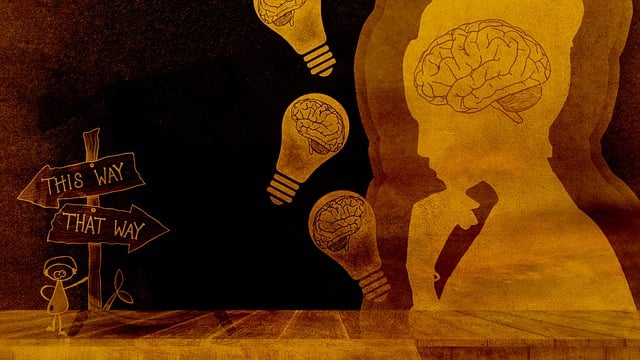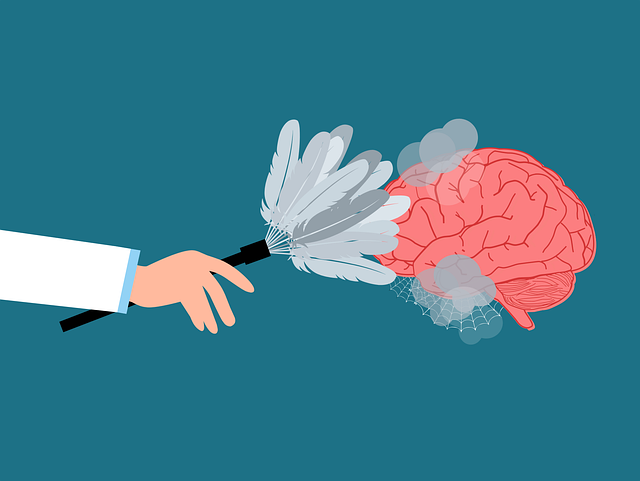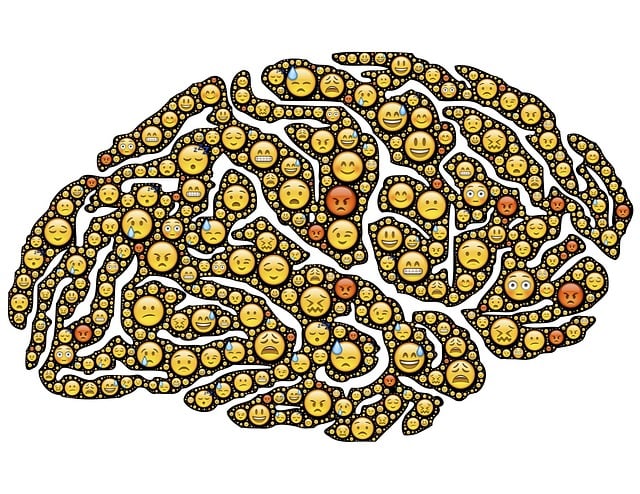In Denver, culturally sensitive healthcare is vital for addressing communication issues in couples' therapy, especially with diverse backgrounds impacting mental wellness. Training in cultural competency equips providers with strategies to overcome biases, build trust, and offer tailored care. Techniques like active listening and mindfulness meditation, coupled with advocacy and podcast series, enhance therapeutic experiences. Such training improves patient-provider communication, prevents misdiagnoses, and promotes resilient communities by supporting both patients and therapists. For Denver couples seeking therapy, culturally competent practices ensure accessible, impactful, and nuanced care.
In today’s diverse healthcare landscape, cultural competency is essential. This article explores how Denver, a bustling metropolis, addresses cultural competencies among healthcare providers. We delve into the impact of biases on patient-provider interactions and highlight effective communication strategies for Denver couples therapy. By understanding common culture-related misunderstandings in clinical settings, we can enhance care delivery through diverse training programs, fostering a more inclusive healthcare environment that serves all Denver residents equitably.
- Understanding Cultural Competency in Healthcare: A Denver Perspective
- The Impact of Cultural Biases on Patient-Provider Interactions
- Effective Communication Strategies for Denver Couples Therapy
- Addressing Common Culture-Related Misunderstandings in Clinical Settings
- Enhancing Care Delivery through Diverse Training Programs
Understanding Cultural Competency in Healthcare: A Denver Perspective

In Denver, cultural competency training has emerged as a vital pillar within healthcare practices, especially in addressing the unique needs of diverse communities. This urban landscape is characterized by a vibrant mix of cultures, each bringing its own set of beliefs, values, and communication styles. When it comes to healthcare, understanding these cultural nuances is essential to ensuring effective treatment and building trust between providers and patients. For instance, Denver’s thriving communities often face specific challenges related to mental wellness, with some groups experiencing higher rates of anxiety and depression due to various social and economic factors.
Cultural competency training equips healthcare providers with the skills to navigate these complex issues. It involves learning effective communication strategies tailored to different cultural backgrounds, fostering empathy, and enhancing problem-solving abilities. For Denver couples facing communication issues or seeking therapy, culturally sensitive practitioners can offer valuable guidance. This may include mental wellness journaling exercises that respect individual cultural practices and promote resilience building, ensuring that care remains accessible and impactful for all residents in this diverse city.
The Impact of Cultural Biases on Patient-Provider Interactions

In healthcare settings, cultural biases can significantly impact patient-provider interactions, leading to miscommunication and disparities in care. These biases, often unconscious, stem from personal experiences, societal influences, and stereotypes that shape how providers perceive and interact with patients from diverse backgrounds. For instance, a provider’s assumptions about a patient’s family dynamics or treatment adherence based on their ethnicity or cultural practices can hinder effective communication and result in misdiagnoses or inadequate care plans. In Denver, where a diverse community coexists, such biases can create barriers for couples seeking therapy, particularly when dealing with communication issues rooted in cultural differences.
Healthcare provider cultural competency training plays a pivotal role in mitigating these challenges by equipping professionals with the skills to recognize and overcome their own biases. Empathy building strategies, a key component of this training, foster deeper understanding and connection between providers and patients from varied cultural contexts. By promoting cultural sensitivity in mental healthcare practice, Denver couples facing communication issues in therapy can benefit from more nuanced care that respects and values their unique cultural perspectives.
Effective Communication Strategies for Denver Couples Therapy

In Denver Couples Therapy, effective communication is key to addressing and resolving issues within relationships. Therapists must employ strategies that foster open and honest dialogue while creating a safe, non-judgmental space for partners to express their feelings and concerns. Active listening, where therapists reflect back what they’ve heard to ensure understanding, can significantly improve connection. Additionally, encouraging mindfulness meditation techniques helps couples stay present during discussions, promoting deeper introspection and empathy.
Beyond therapy sessions, Mental Health Policy Analysis and Advocacy plays a crucial role in supporting Denver Couples Communication Issues. By advocating for policies that prioritize mental wellness, therapists contribute to a broader environment where relationships can flourish. This includes initiatives that make therapy more accessible and integrate mental health considerations into community resources, ultimately enhancing the effectiveness of Denver Couples Therapy in addressing communication challenges. Incorporating elements from Mental Wellness Podcast Series Production can also enrich therapeutic experiences, offering couples additional tools and insights through engaging audio content designed to support their journey towards better communication.
Addressing Common Culture-Related Misunderstandings in Clinical Settings

In clinical settings, addressing common culture-related misunderstandings is vital to ensure effective communication and quality care. Denver couples communication issues therapy highlights the importance of cultural competency among healthcare providers. Misunderstandings often stem from differences in language, values, beliefs, and backgrounds, which can create barriers in patient-provider interactions. For instance, a healthcare provider’s assumptions about a patient’s family dynamics or decision-making process may be based on their own cultural norms, leading to misinterpretations and suboptimal care.
Training programs focused on cultural competency aim to prevent burnout among healthcare providers by equipping them with the skills to navigate these complexities. By understanding the unique perspectives of diverse patient populations, providers can offer more tailored and compassionate care. Moreover, such training incorporates effective communication strategies that facilitate open dialogue, enhancing patients’ willingness to share sensitive information, including those seeking trauma support services. Burnout prevention strategies for healthcare providers often emphasize the importance of mental wellness as a cornerstone of delivering quality care in an increasingly diverse healthcare landscape.
Enhancing Care Delivery through Diverse Training Programs

In today’s diverse and interconnected society, healthcare providers must be equipped to deliver culturally competent care that addresses the unique needs of all patients. This involves recognizing and respecting individual cultural backgrounds, beliefs, and values, which can significantly impact health and wellness. Training programs focused on enhancing cultural sensitivity in mental healthcare practice are becoming increasingly vital, especially in cities like Denver where a rich mix of cultures coexist. These programs not only equip therapists with empathy building strategies but also foster effective communication, crucial for overcoming Denver couples communication issues therapy may present.
Diverse training initiatives go beyond basic Cultural Sensitivity in Mental Healthcare Practice to incorporate Self-Care Practices that promote resilience among providers. By investing in these programs, healthcare institutions can ensure their staff are better equipped to navigate complex cultural landscapes, ultimately enhancing care delivery and patient outcomes. This holistic approach not only benefits individuals seeking therapy but also contributes to building stronger, more inclusive communities.
Cultural competency training is a game-changer in healthcare, especially for Denver’s diverse community. By understanding and addressing cultural biases, healthcare providers can significantly improve patient-provider interactions, as evidenced by the focus on Denver Couples Communication Issues in therapy settings. Effective communication strategies, as discussed, play a vital role in enhancing care delivery and ensuring that all patients receive respectful, culturally sensitive treatment. The various training programs highlighted in this article underscore the importance of such initiatives to revolutionize healthcare access and outcomes for Denver’s vibrant population.














